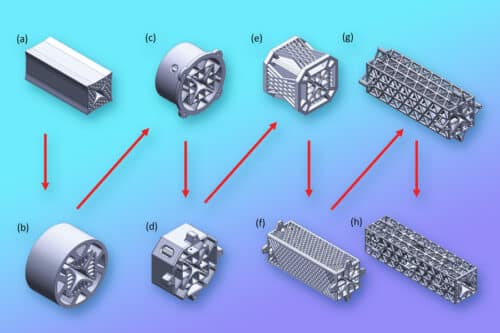Small and cheap mass filters make it easier to have portable mass spectrometers that can find unknown chemicals in faraway places.

Mass spectrometers, instruments for identifying chemical substances, are commonly employed in fields such as forensic analysis, toxicology tests, and geological exploration. However, their large size, high cost, and susceptibility to damage restrict their deployment to specific locations.
MIT researchers have developed a core component of a mass spectrometer, a mass filter, which is significantly lighter and less expensive than those produced through traditional methods. The filter, made from a durable and heat-resistant glass-ceramic resin, is 3D printed in a single step, eliminating the need for assembly, often leading to performance-impairing defects.
Size matters
Researchers used additive manufacturing to produce optimally sized and shaped miniaturised quadrupoles for better precision and sensitivity, utilising glass-ceramic resin capable of enduring up to 900 degrees Celsius. The vat photopolymerization process involves curing resin in a vat with an LED array, building the device layer by layer as a piston moves up and down.
Utilising 3D printing, researchers have created a quadrupole for mass spectrometers with hyperbolic rods, an ideal shape but hard to make conventionally. They included a supportive triangular lattice structure for stability. The quadrupole was finished using electroless plating, coating the rods in a metal film for conductivity while preserving the rest of the device, ensuring uniform coverage without damage or electrical shorts.
Maximising performance
In evaluating their 3D-printed quadrupoles, the team integrated them into a commercial setup and discovered that they achieved higher resolutions than other miniaturized filters. These quadrupoles, measuring around 12 centimetres in length, boast a density of only one-quarter that of similar stainless-steel filters. Moreover, subsequent experiments indicated that the precision of these 3D-printed quadrupoles is comparable to that of larger, commercial-scale filters.
Looking ahead, the researchers aim to enhance the quadrupole’s performance by extending its length, allowing for more precise measurements as more ions are filtered out over its increased size. They also plan to investigate alternative ceramic materials for improved heat transfer.






